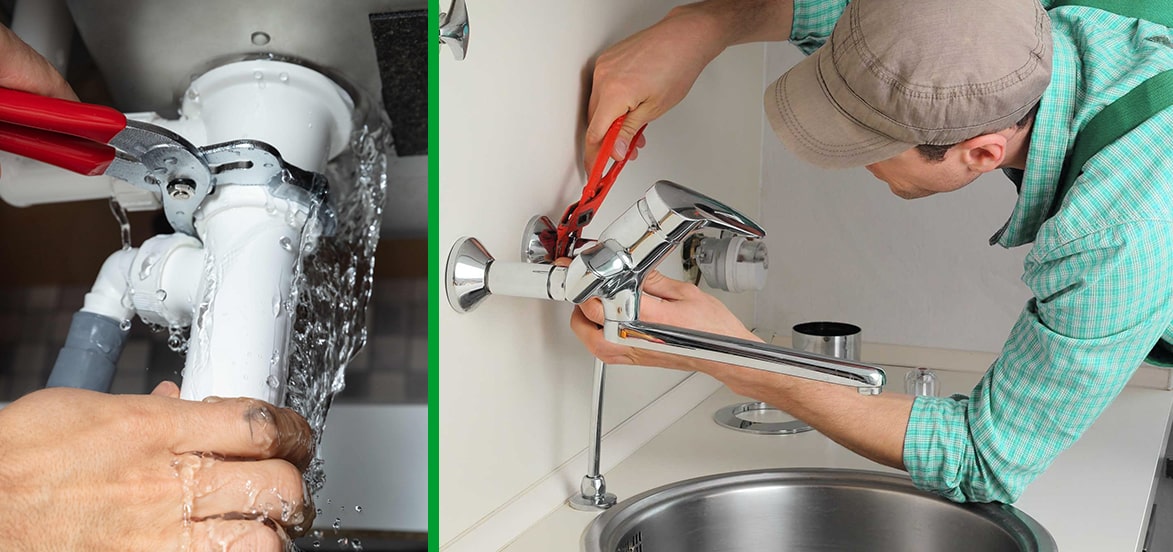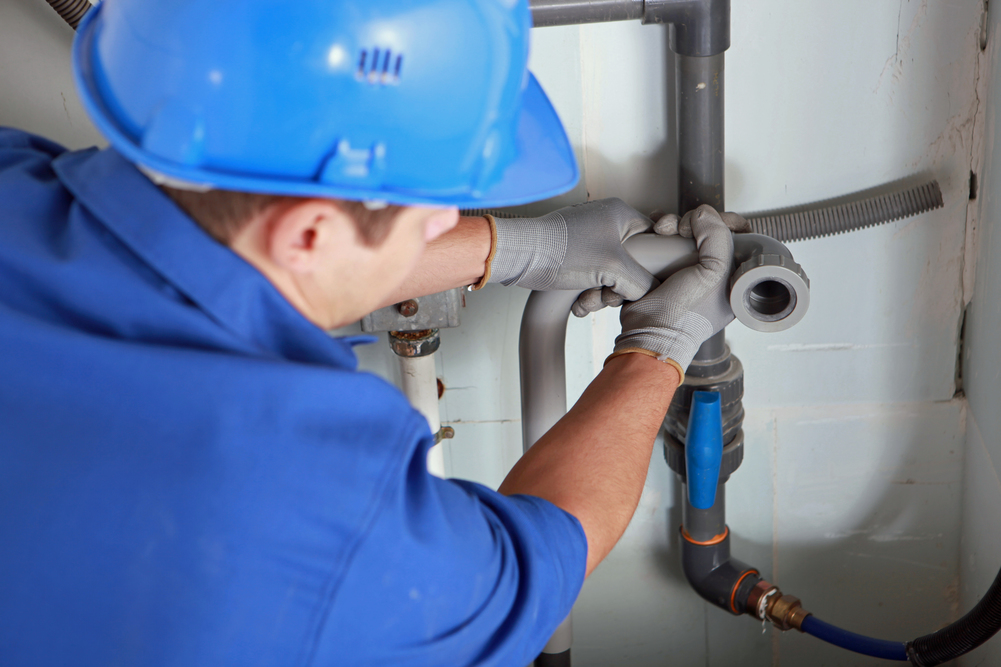Avoid These 6 Things That Are Damaging Your Home's Plumbing Systems
Avoid These 6 Things That Are Damaging Your Home's Plumbing Systems
Blog Article
Just how do you really feel on the subject of Leak Detection and Repair Without Destroying Your Home?

The trick to long-term devices, unsurprisingly, is proper maintenance. There's no hard and fast policy that can ensure your plumbing devices a lengthy wear, but you can avoid unnecessary damages and also fixings by avoiding negative plumbing habits.
You should quit doing these 6 things else you'll keep calling your plumber over for minor faults.
Flushing everything
Yes, your toilet drainpipe brings about the sewers, but that doesn't indicate you must unload simply anything away. Lots of 'flushable' products are actually excellent clog starters, as an example dental floss. Asides keeping noticeable non-flushable products like cords and plastics out of your commode, you must also prevent flushing cotton swab, menstrual items, wipes, daipers and also prophylactics down the bathroom drain.
Putting oil in the sink
We know effectively disposing of grease after a hearty meal is a discomfort. Yet just pouring it away can do long-lasting damage to your pipelines. "The fat and also grease can block your drain severely adequate to force you to call a plumber," discusses Dawson. "Plumbing works best when it's well cared for-- not abused with oil."
Making use of too much drain cleaner
Making use of a drainpipe cleaner greater than one or two times a month is an indicator that something serious is taking place within your pipelines. Now, rather than encountering the major issue, you go with a quick fix; a fizzy drainpipe cleaner. Rightfully, a drain cleaner will look after the blockage, however at what price?
The chemicals in a drainpipe cleaner can quicken the corrosion of your pipelines. Include that to whatever underlying issue is triggering the blockage and you might need to a serious problem on your hands.
If you experience way too many blockages, call your emergency plumber instead of making use of a drain cleaner.
Not washing recipes prior to filling them right into the dish washer
it's called a dishwashing machine, however throwing in dishes, pots, and also pans covered in large food fragments can actually cause some major damages to the device, resulting in long-lasting problems down the line. "House owners might have to get their dish washer repaired more often if they don't wash their dishes prior to filling, or at least get rid of larger food items," clarifies Audrey Monell, owner of Forrest Anderson Plumbing as well as Air Conditioner in Glendale, Arizona. "Food that gets stuck on recipes triggers the dish washer to function harder, which can wear down parts much faster, resulting in troubles."
DIYing whatever
With plumbing, a stitch in time actually does save 9. You can avoid a fullblown plumbing emergency by calling your plumber at the correct time.
You may have discovered a couple of plumbing hacks from your father, however you should certainly understand where to draw the line as well as call an expert. As an example, you may have the ability to deal with a blockage yourself, however you should not attempt to change a pipe. You might inequality pipes or overtighten a screw, triggering more injury as well as damage than you assumed. Calling a plumber is a safe and also economical choice.
Not changing your dishwashing machine hoses
One easy way to ensure that you use your dish washer for many years is to replace the pipe at the very least when in 5 years. This also gets washing device hoses.
With time, food bits, soap as well as oil can create obstructions within your pipes. Replacing them on schedule will stop any presure accumulate that can harm the internal functions of your dishwashing machine or cleaning equipment.
An enhanced steel entwined hose pipe does a terrific task of prolonging your device's usage time.
No winter months precautions
Extreme weather conditions are bad for your pipes, particularly if they're made from steel. You need to shield your revealed pipelines, and also your water container, even if you have a hot water heater. You need to additionally switch off your yard tube shutoff and also any other exterior water channels. These channels are outlets for chilly; you pipelines can start to freeze from outdoors if you do not.
How Hard Water Damages Your Plumbing and Appliances
Hard water is no stranger to most households across America. This silent invader affects 85% of homes in the United States every day, wreaking havoc on pipes, plumbing fixtures, and water-using appliances.
Should you become a victim of hard water, you must understand exactly what it is and how it affects your plumbing and appliances. This will help you determine the correct measures to put in place to fix or prevent any problems that may arise.
First off, what exactly is “hard” water?
In short, “hard water” is used to describe water that contains relatively high amounts of dissolved minerals, primarily calcium and magnesium, and a host of trace metals. When rainwater falls from the sky (usually in a pure form), it absorbs the hardness minerals from rocks and soil, which changes it from soft to hard water.
What about my plumbing and appliances?
Mineral deposits from hard water can cause buildup on tubs, shower, sinks, faucets. But that’s only a small scratch of the surface. Those minerals can gradually build up inside pipes, fixtures, water heaters, washing machines, and dishwashers. Once they accumulate in those areas, they can clog pipes and create major problems throughout your plumbing system, from reduced water flow to increased pressure on pipes and fixtures.
This limescale buildup might affect some appliances, causing them to operate less efficiently and wear down faster. And the result? Higher energy bills, more (costly) plumbing replacements and repairs, and damaged appliances.
Keep in mind that certain types of plumbing are more susceptible to clogging than others. Copper, PVC, and PEX pipes are more resistant to hard water buildup and corrosion, but they can still get clogged or completely blocked by scale deposits.
How do I know if my water is hard?
White limescale buildup on plumbing fixtures (or any of the other signs mentioned above) is usually a good sign that your water is hard. If you suspect that you have hard water, you can simply shake up a small amount of dish soap and water in a closed container. If the mixture doesn’t create a lot of suds, you probably have hard water.
The most precise method, however, is to test your water with a DIY test kit (sold online or at local home centers or hardware stores) or send a water sample from your tap to a local lab to be tested. Be sure that you understand the nature of the test, the water condition being measured, and the significance of the test results.
Another way to obtain an estimate of water hardness is to check your annual water quality report to see if your water provider has reported any instance(s) of water hardness in your water supply.
https://www.springwellwater.com/how-hard-water-damages-your-plumbing-and-appliances/

I ran across that post on Leak Detection and Repair Without Destroying Your Home when doing a lookup on the search engines. Sharing is caring. You just don't know, you will be doing someone a favor. We value reading our article about Can Hard Water Ruin Your Appliances?.
Schedule An Appointment Report this page